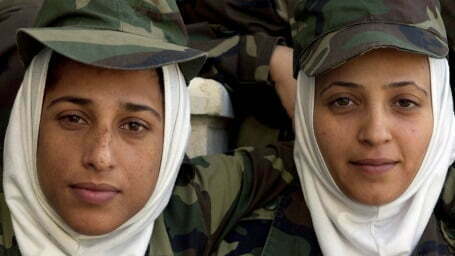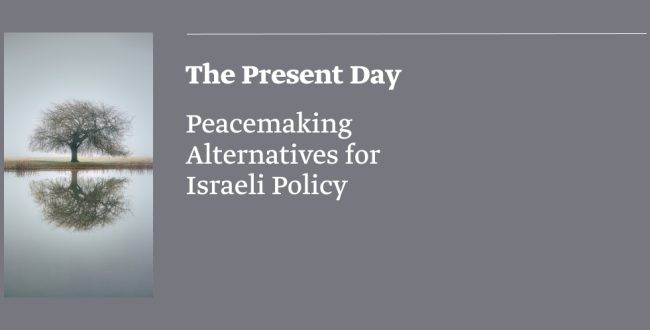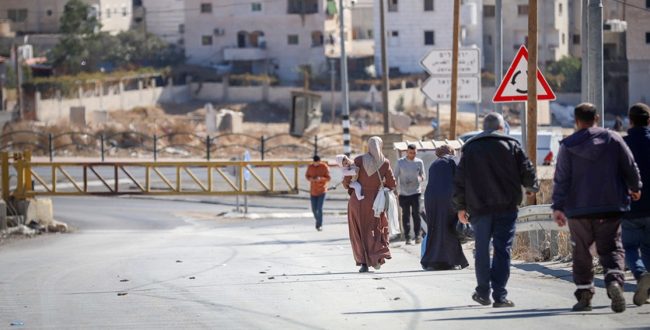A Moroccan ministerial council recently approved the draft of a law mandating compulsory military service; if approved, the law would result in the recruitment of millions of youth in the kingdom (between the ages of 19-25) who will serve in its military for a year. Reinstituting compulsory service in Morocco, a decade after it had been abrogated, aroused a heated public debate. One cause of this debate is the application of mandatory service in the draft legislation to both men and women. Currently, no Arab country maintains compulsory military service of women, and in general, only a handful of countries around the world mandate this, including China, North Korea, Norway and of course, Israel. Pakistan is the only Muslim country that prescribes women’s military service in law.
It appears, however, that Morocco is not the only Arab country considering implementing changes regarding women’s participation in armed service. For example, earlier this year in Tunisia, the Ministry of Defense announced it is formulating a similar law, and called to prepare the military establishment to achieve gender parity. Recently, rumors spread on Syrian social networks that military service in Assad’s army will become compulsory for women. In Egypt, a group of young women named “An Egyptian Female Soldier” (مجندة مصرية) was established, calling for instituting a law that would draft women into military service and asking to participate in the campaign against terrorism in the country.
Examining the history of several Arab countries shows that women have joined the ranks of armed forces, security forces and the police, without any law obligating them to do so. In fact, women in several Arab countries joined the armed forces even in the pre-independence era, as part of the struggle against Western colonialism. Women in Algeria, for example, are renowned for the assistance they provided to the National Liberation Army during the War of Independence (1954–1962). They mostly played the roles of nurses, cooks or fundraisers, but a few served as “mujahedat” (مجاهدات), meaning, freedom fighters. Once the war concluded, most of these women reverted to traditional roles in the private sphere, but even today, Algeria is considered the leading Arab country in terms of representation and promotion of women in its armed forces.
At times, other Arab republics, particularly ones based on the military establishment, such as Syria and Iraq, encouraged at various times the enlistment of women to project images of progressivism, secularism, socialism and the unity of effort between men and women. For years now, women have also served in the armies of the long-standing monarchies of the Arab world, Jordan and Morocco. In Jordan, women initially served in roles pertaining to education and health, but gradually ascended to administrative positions in roles supportive of combat forces. Jordan also operates a military college for women, as well as a Directorate of Women’s Affairs. In Morocco, women have been promoted to high-ranking positions in the military, including in technical roles in the spheres of communications and the air force.
In recent years, even the conservative monarchies of the Gulf region have allowed women to join their ranks: the United Arab Emirates began allowing women to volunteer in 2014; Qatar adopted a similar policy in March 2018; and the Kuwaiti minister of defense announced in late 2017 that his country too will examine the issue of recruiting women into the armed forces. In Saudi Arabia, which maintains strict gender segregation, there is greater opposition to women’s enlistment into the armed forces. However, it is exactly this strict opposition to gender mixing that led to recruitment of women for security positions, such as border controllers, because these roles allow female travelers to be examined and questioned by women, thus maintaining the existing segregation.
Despite the aforementioned, women’s participation in the military and security forces is still a controversial topic across the Arab world. Women’s service, even if not in combat roles, is perceived as contravening women’s traditional roles as wives and mothers, and thus married women and those who have children are exempt from service. Many in the Arab world view service in a mixed-gender environment as contrary to values of modesty, and some even claim, as a Salafi cleric in Morocco recently did, that women’s military service is in violation of the principles of Sharia.
On the other side of the debate, men and women supportive of recruiting women into the armed forces argue that this would help provide women with equal opportunities, as well as the ability to gain skills and professional experience; this is a particularly pressing need due to the high unemployment rate among women and the growing realization across the Middle East that integrating women into the labor market will assist the local economies. Some on this side of the debate mention that in early Islamic history, women participated in battles, such as Prophet Muhammad’s wife, Ayesha, who rallied the fighters in the “Battle of the Camel” (named after the camel she rode into battle), and thus, there is no religious prohibition against women’s military service.
The arguments in favor and against women’s enlistment are taking place in Israel as well, particularly among the ultra-orthodox and religious-nationalist sectors. It is worth noting that commentators in the Arab world are aware of the heated debate on the matter in Israel, and at times mention the Israeli test case. Thus, when the Lebanese channel al-Mayadeen held a debate on the matter, the host stated that “in Israel, there is mandatory recruitment of women, and those who want to fight Israel, must also enforce recruitment of women.” As part of this debate, an expert on Israeli affairs analyzed the opposition of some rabbis to recruitment of women. It appears that in both Israel and some Arab countries, the opposition of religious figures to military service attests to the growing desire to some women to join the ranks of the military (for example, Israeli women in the religious-nationalist sector).
However, not only women are interested in advancing their ability to join the armed forces, but also actors in the political and security establishment. To a large extent, women in the military have become symbols of the struggle against growing religiosity in Israel or Islamic radicalization in Arab countries. Their participation in the armed forces represents moderation, and they are considered as playing a supportive role for combat forces, not merely in the technical aspect, but also in the moral sense, given their roles as trainers and teachers of soldiers. The images of women in uniform stand in stark contrast to the images of thousands of women horribly abused by ISIS. This contrast was utilized extensively by the Kurdish forces battling ISIS, in which women play a critical role in combat.
It would be remiss not to ask: do women who join the armed forces bring with them a different approach and discourse than those of men? Can they affect positive change in systems that are inherently hierarchical and patriarchal, or are they in fact helping to preserve the current order? Is the military a unique structure that allows for social mobility of women, or is it merely a reflection of the state and society? An attempt to answer these questions requires a whole separate article.


















